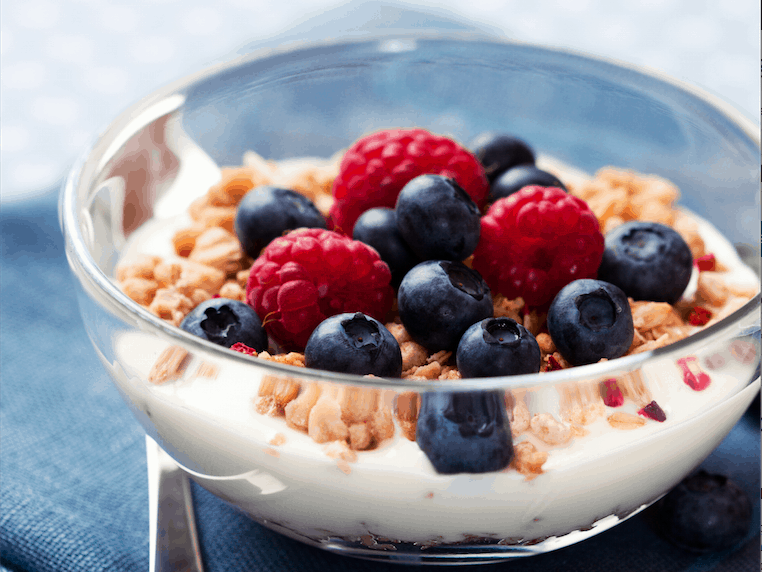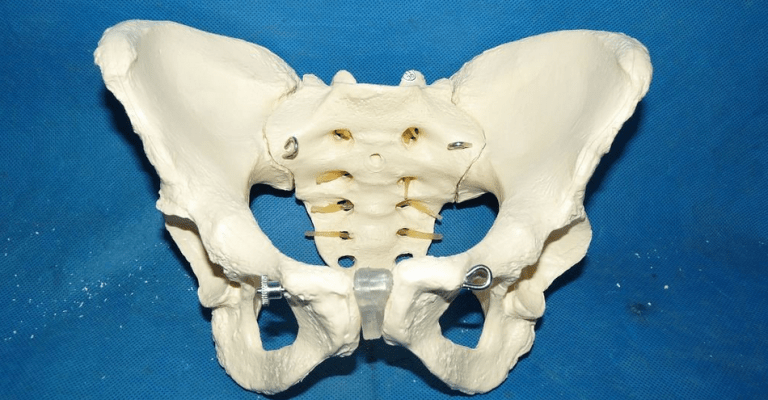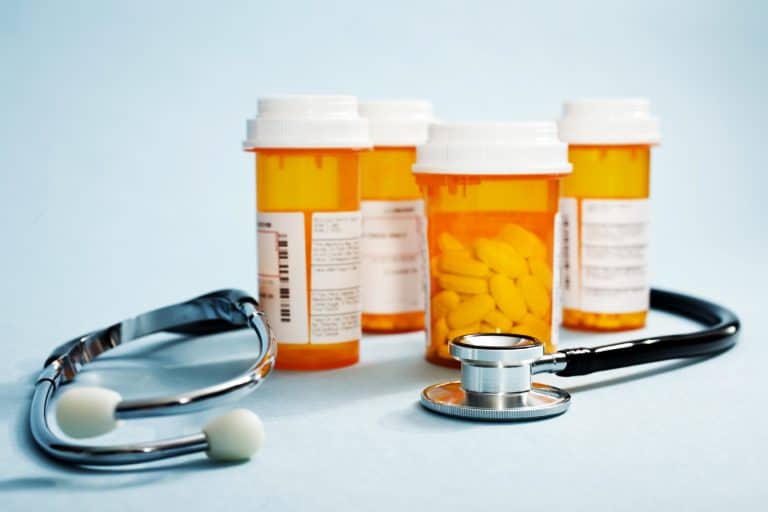The term probiotics refers to the yeasts and “good,” or beneficial, microorganisms, bacteria, and gut microflora that normally reside in balance with other bacteria in the intestinal tract. Probiotics help with digestion and offer protection against harmful bacteria. The largest group of beneficial bacteria in the gut are those in the genus Lactobacillus, followed by Bifidobacterium. Each of these groups has scores of species and subspecies, and researchers are still exploring the traits and benefits of these microorganisms. Many men take probiotics for prostatitis treatment because probiotics work well for men with prostatitis, especially when combined with the supplements pollen and quercetin as part of phytotherapy.
Men with prostatitis are often subjected to many courses of antibiotics (in some cases unnecessarily). Since widespread use of antibiotics can kill off both the beneficial and the harmful bacteria in the body, some of the more harmful bacteria in the intestinal tract can take over, causing health problems such as diarrhea, rashes, ulcers, and gum problems. It has even been hypothesized that widespread use of antibiotics can increase a man’s risk for developing chronic prostatitis.
Taking a probiotic supplement can help restore the balance of good and bad bacteria in the intestinal tract, which can help men to fight the negative health effects of these organisms. Probiotics can help to restore gut health, which is especially compromised by taking antibiotics that are commonly prescribed for prostatitis. Supplements like probiotics can help restore intestinal health, and are particularly helpful any time a person has taken antibiotics. Probiotics can help restore a healthy balance and promote immunity by restoring the beneficial bacteria. There are also a number of foods that provide probiotics.
Probiotics are beneficial to men’s health in several ways. The following includes the benefits of the two main types of “good” bacteria:
- Lactobacillus, as well as the genera Streptococcus and Lactococcus, are known as lactic acid bacteria. These beneficial bacteria help break down food, and in the process form lactic acid and hydrogen peroxide, which in turn helps eliminate bad bacteria and help restore balance to the gut. They also are critical in promoting digestion, nurturing immune system function, boosting the synthesis of B vitamins, and aiding in the absorption of nutrients (including calcium).
- Bifidobacterium species also produce lactic acid but can be beneficial in some different ways. Generally they support the immune system, help reduce cholesterol levels, fight allergic reactions and infections, aid in digestion, and have some anticancer properties.
You can see why it can be beneficial to provide your body with both Lactobacillus and Bifidobacterium species of probiotics on a daily basis.
Probiotics for Prostatitis Treatment—Do They Work?
Long before researchers began to understand the scientific basis behind the benefits of probiotics, various societies have been enjoying fermented foods and beverages that provided these beneficial bacteria. The ancient Romans ate sauerkraut while members of ancient (and contemporary) Indian society enjoyed a raw yogurt beverage. People in Asia have been enjoying a variety of fermented vegetables for millennia while Bulgarians and people living in the Ukraine area make fermented dairy beverages a part of their regular diet.
In the early 1900s, beneficial bacteria received some scientific recognition, but a better appreciation for their health benefits did not occur until many decades later. This is partly because probiotics are a natural substance and not a profitable product for the pharmaceutical companies, who were busy introducing many new drugs to the market in that time. In recent years, research on probiotics and an appreciation for these good microorganisms has been growing.
One of the best ways to prevent prostatitis from developing is to keep the immune system in optimal condition. Providing the gut—which we now know controls 70 to 80% of immune function—with a probiotic supplement on a regular, everyday basis can help men meet that goal. If the population of beneficial bacteria in your gut is reduced or compromised due to illness, stress, or the presence of toxins (including medications such as antibiotics), it’s important to replenish the levels of good bacteria and restore balance to the intestinal tract.
Probiotics can help the body in many ways besides prostatitis and replenishing good bacteria after a course of antibiotics. There is encouraging evidence that probiotics can do the following:
- Boost immunity
- Treat diarrhea
- Prevent and treat urinary tract infections
- Treat irritable bowel
- Fight food-born illnesses
- Fight inflammation
- Speed up treatment of certain intestinal infections
- Prevent illnesses such as flus and colds, or at least reduce their severity
- Improve mental health (mitigating anxiety and depression)
Psychiatrists have been noticing the positive benefits of probiotics for mental health. More and more doctors are recommending probiotics such as Lactobacillus, Bifidobacterium, and Lactococcus to their patients with anxiety and depression. Because chronic prostatitis can be related to stress, anxiety, and depression, this is another potential benefit to taking a daily probiotics supplement.
Probiotics for Bacterial Prostatitis
Among the common causes of bacterial prostatitis are urinary tract infections, epididymitis, and urethritis. The bacteria that cause these infections, which can result in prostatitis, may be held at bay or eliminated if the gut is well populated with probiotics. Therefore, regular ingestion of probiotics can assist in preventing the development of acute and chronic prostatitis by fighting both inflammation and the possibility of infection.
Although preventing bacterial prostatitis is a goal, you can still develop prostatitis, and that’s when probiotics can help with management. Doctors prescribe antibiotics for bacterial prostatitis, sometimes long courses for several weeks, placing men at risk of developing antibiotic-associated diarrhea. In the case of chronic bacterial prostatitis, the bacterial infection frequently returns and needs to be treated for months, placing men at additional risk. If your doctor has prescribed antibiotics to treat your condition, you can take a greater dose of a combination of beneficial bacteria to prevent or reduce inflammation as well as antibiotic-associated diarrhea.
Probiotics for Chronic Prostatitis
The most common type of prostatitis is a nonbacterial form called chronic prostatitis/chronic pelvic pain syndrome (CP/CPPS). However, even though this prostate disease is termed “nonbacterial,” disease-causing microorganisms can still play a role. In fact, two potential causes of nonbacterial prostatitis are atypical bacteria that resist treatment with antibiotics and having a history of bacterial infection in the prostate. Therefore, it is a wise move to use probiotics on a daily basis and especially when a prostate problem is suspected. Even though CP/CPPS is nonbacterial, many doctors still prescribe antibiotics to “rule out” in infection, disrupting the balance of good and bad gut bacteria.
Some experts believe that an imbalance in the bacteria normally found in the urethra may reach the prostate and be involved in causing chronic prostatitis. They also suggest that the common use of antibiotics (typically prescribed for chronic bacterial prostatitis) may trigger the disease. (Liu) If this is the case, then use of probiotics could be helpful in managing prostatitis.
Another theory about prostatitis is that it is an autoimmune disorder. Since probiotics support the immune system, regular use of beneficial bacteria could serve to boost the immune response and guard against this inflammatory disease.
Probiotics can be used to help prevent and manage chronic nonbacterial prostatitis. When probiotics are combined with other supplements such as pollen extracts and quercetin as phytotherapy, they have been shown to have long-term favorable outcomes for CP/CPPS. That is why phytotherapy is a recommended treatment for whole-body approaches to CP/CPPS such as organ-specific domains of the UPOINT system and the NPAT CPPS Treatment Program (NPAT stands for Natural treatments, Phytotherapy, Alternative treatments, and Total body).
Maintaining a healthy balance of intestinal flora is important every day. Good health depends on your having a healthy balance of friendly bacteria in your gut to offset the negative effects of the harmful microorganisms that also reside there. Even though you should take steps to correct occasions when your beneficial bacteria levels are jeopardized, it’s also essential to maintain healthy levels of beneficial bacteria on a daily basis since as a group they play a critical role in maintaining overall health, including your prostate health.
Uses and Side Effects of Probiotics
Probiotics are a good idea for men’s whole-body health and are best taken daily. Maintaining a healthy balance of intestinal flora is important every day of your life. You can find probiotics two sources: food and supplements.
Foods that contain probiotics include fermented vegetables (including sauerkraut and kimchee), yogurt, kefir, buttermilk, and items that are enriched with good bacteria. Although it is good to include these foods in your diet, they often do not contain a significant amount of active bacteria, especially if the products have been pasteurized or otherwise processed, as these methods can kill the beneficial bacteria.
Your other option is to take a daily high-quality probiotic supplements from a reputable manufacturer. When shopping for probiotics, you should look for products that offer a variety of well-researched Lactobacillus and Bifidobacterium species to help ensure you replenish and restore a healthful balance of bacteria in your gut. This will benefit your overall health and your prostate health in particular. Combining probiotics with other natural supplements such as quercetin and pollen extracts (called phytotherapy) can help you successfully manage chronic prostatitis.
Probiotics do not usually cause side effects. If they do occur, they tend to be mild and associated with digestive gas or bloating.
References for Probiotics for Prostatitis Treatment:
Abad CL, Safdar N. The role of lactobacillus probiotics in the treatment or prevention of urogenital infections—a systematic review. Journal of Chemotherapy 2009 Jun; 21(3): 243-52
Agerholm-Larsen L et al. The effect of a probiotic milk product on plasma cholesterol: a meta-analysis of short-term intervention studies. European Journal of Clinical Nutrition 2000 Nov; 54(11): 856-60
American Health Foundation. Bifidobacterium longum, a lactic acid-producing intestinal bacterium inhibits colon cancer and modulates the intermediate biomarkers of colon carcinogenesis. American Health Foundation, 1997.
Berggren A et al. Randomised, double-blind and placebo-controlled study using new probiotic lactobacilli for strengthening the body immune defence against viral infections. European Journal of Nutrition 2011 Apr; 50(3): 203-10
Bested AC et al. Intestinal microbiota, probiotic and mental health: from Metchnikoff to modern advances: Part I—autointoxication revisited. Gut Pathogens 2013 Mar 18; 5(1): 5
Bested AC et al. Intestinal microbiota, probiotics and mental health: from Metchnikoff to modern advances: part III—convergence toward clinical trials. Gut Pathogens 2013 Mar 16; 5(1): 4
Bordoni A et al. Cholesterol-lowering probiotics: in vitro selection and in vivo testing of bifidobacteria. Applied Microbiology and Biotechnology 2013 Sep; 97(18): 8273-81
Dai C et al. Probiotics and irritable bowel syndrome. World Journal of Gastroenterology 2013 Sep 28; 19(36): 5973-80
Furusawa Y et al. Commensal microbe-derived butyrate induces the differentiation of colonic regulatory T cells. Nature 2013 Dec 19; 504:446-50
Guandalini S. Probiotics for prevention and treatment of diarrhea. Journal of Clinical Gastroenterology 2011 Nov; 45 Suppl:S149-53
Hempel A et al. Probiotics for the prevention and treatment of antibiotic-associated diarrhea. A systematic review and meta-analysis. Journal of the American Medical Association 2012; 307(18): 1959-69
Hickson M et al. Use of probiotic Lactobacillus preparation to prevent diarrhea associated with antibiotics: randomized double blind placebo controlled trial. BMJ 2007 Jul 14; 335(7610): 80
Johnston BC et al. Probiotics for the prevention of Clostridium difficile-associated diarrhea: a systematic review and meta-analysis. Annals of Internal Medicine 2012; 157(12): 878-88
Jonkers D et al. Probiotics in the management of inflammatory bowel disease: a systematic review of intervention studies in adult patients. Drugs 2012 Apr 16; 72(6): 803-23
Liu L et al. Urethral dysbacteriosis as an underlying, primary cause of chronic prostatitis: potential implications for probiotic therapy. Medical Hypotheses 2009 Nov; 73(5): 741-43
Ljungh A, Wadstrom T eds. Lactobacillus Molecular Biology: From Genomics to Probiotics. Caister Academic Press, 2009, pg. 153
Messaoudi M. Assessment of psychotropic-like properties of a probiotic formulation (Lactobacillus helveticus R0052 and Bifidobacterium longum R0175) in rats and human subjects. British Journal of Nutrition 2011 Mar; 105(5): 755-64
O’Connor A et al. Treatment of Helicobacter pylori infection 2013. Helicobacter 2013 Sep; 18 Suppl 1:58-65
Ouwehand AC et al. Probiotics reduce symptoms of antibiotic use in a hospital setting: a randomized dose response study. Vaccine 2014 Jan 16; 32(4): 458-63
Sanchez M et al. Effect of Lactobacillus rhamnosus CGMCC1.3724 supplementation on weight loss and maintenance in obese men and women. British Journal of Nutrition 2013 Dec 3: 1-13
Tillisch K et al. Consumption of fermented milk product with probiotic modulates brain activity. Gastroenterology 2013 Jun; 144(7): 1394-401
WebMD: What are probiotics?







